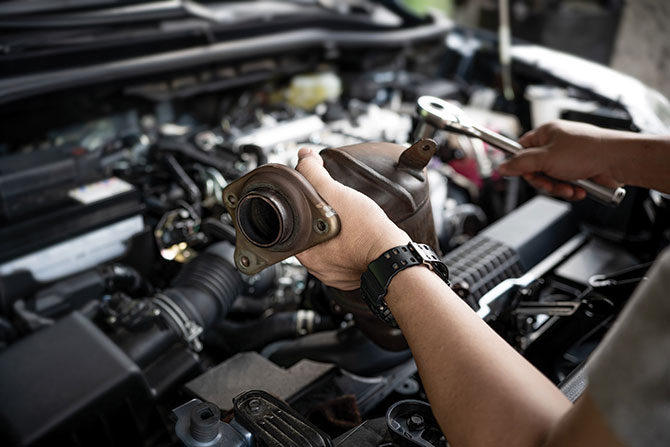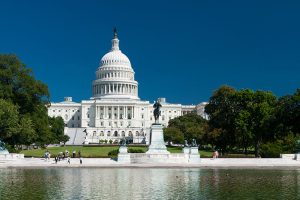The following is the latest information on some of the major issues being addressed by NADA and was discussed at the most recent NADA Board Meeting.
FTC “Vehicle Shopping Rule”
The FTC’s proposed “Vehicle Shopping Rule” would inject massive amounts of time, cost, and complexity into the vehicle sales process, undermining industry efforts to streamline and improve the customer experience. NADA has urged the FTC to scrap the proposed rule and go back and propose a rule through a responsible regulatory process involving all stakeholders.
On October 4, Senators Moran (R-KS) and Manchin (D-WV) introduced S. 3014, the “FTC REDO Act.” The bill would stop the proposed rule and offer the process the FTC must follow to “redo” the proposal. The bill also amplifies the concerns expressed by both Republican and Democratic members of Congress that believe the FTC’s rushed and irresponsible approach will add frustration and confusion to the car buying process, therefore making it more costly for consumers.
NADA expects the legislation to also be introduced in the House and will be seeking co-sponsors to demonstrate bipartisan support to stop this rule.
Federal Emissions Rulemakings
America’s franchised new-car and -truck dealers are doing their part to be ready for the increasing electrification of the fleet. Over the next decade, franchised dealers will invest more than $5 billion in training and equipment necessary to facilitate an unbeatable consumer experience when it comes to EV education, sales, and service across the entire market.
Yet, any significant level of EV penetration into the mass market will require a broad, unified strategy that recognizes the importance of factors such as affordability, charging infrastructure, utility capacity, resources for battery manufacturing, model availability, and consumer incentives.
The Biden Administration’s policy actions, including the most recent proposed emissions rulemaking from EPA and DOT, disregard critical demand-side marketplace factors. Its approach (shared by ZEV states like New Jersey) is based on overly aggressive assumptions regarding future EV market penetration and has the effect of promoting electric exclusively at the expense of ICE, hybrid, and other alternative-fuel vehicles.
The EPA’s proposed rule is expected to be finalized by the first half of 2024, with the DOT’s rule following shortly thereafter. NADA will continue to advocate for technology-neutral emissions standards that maximize fleet turnover as opposed to inhibiting it.
LIFO Relief
Congressional leaders continue to express support for retroactive LIFO relief legislation for dealers. Under the “Supply Chain Disruptions Relief Act,” Congress would determine that the conditions necessary to grant additional time to replace vehicle inventories under existing law due to pandemic-related foreign trade interruptions have been met. While vehicle inventory is recovering, the LIFO recapture penalty has imposed massive tax bills on small business dealerships that will take years to recover. Dealers should remind members of Congress that this technical and noncontroversial legislation would merely provide relief to dealers whose inventories disappeared due to an unprecedented interruption of global supply chains.
While challenges remain with congressional gridlock, LIFO relief is a strong candidate for action this year, with its overwhelming bipartisan support and passage in the Senate by unanimous consent last year. The legislation has 139 House cosponsors and 64 Senate cosponsors. This significant support makes the legislation less vulnerable to procedural hurdles.
Catalytic Converter Theft
Catalytic converter theft has skyrocketed over the past few years, costing millions of dollars to businesses and individual vehicle owners. Replacing a catalytic converter is costly and often difficult due to demand and supply chain shortages. Catalytic converters are not currently one of the 18 vehicle parts required to be marked with a VIN or number traceable to a VIN. Law enforcement has said that tracing in the legislation is critical to help deter the theft and trafficking of stolen catalytic converters since it would make it easier to prosecute criminals.
There are currently over 100 state bills addressing catalytic converter thefts, but since this crime frequently involves trafficking stolen parts across state lines, a federal standard is needed to help law enforcement. The “Preventing Auto Recycling Theft (PART) Act” provides a national framework to help law enforcement combat catalytic converter theft by marking catalytic converters and creating a more transparent market that deters its theft. NADA will continue to advocate for the passage and enactment of this legislation to help curb the growing national problem of catalytic converter theft.
OEM Engagement
NADA remains focused on the unsettling way many OEMs are speaking publicly about the retail process, and we continue to track and express our concerns about many of the changes being implemented between OEMs and their dealers. NADA also knows that, despite the fact that they have not been operationalized on a widespread basis, these ongoing references to things like direct sales; direct and exclusive sale of post-purchase vehicle services; taking over the customer experience; and dealers as agents, etc., cannot realistically be seen by dealers, NADA, or state associations as anything other than threats that go to the very core of the franchise system.
NADA uses their regular Dealer Attitude Survey meetings, as well as constant engagement at the highest levels, to discuss these issues head-on with OEM leaders. OEMs that NADA engages with appreciate that the national association is increasingly leaning into the dealer-OEM relationship, and dealers appreciate the clarity that most OEMs have provided by publicly committing to their dealers and recognizing the competitive advantage dealers provide.








